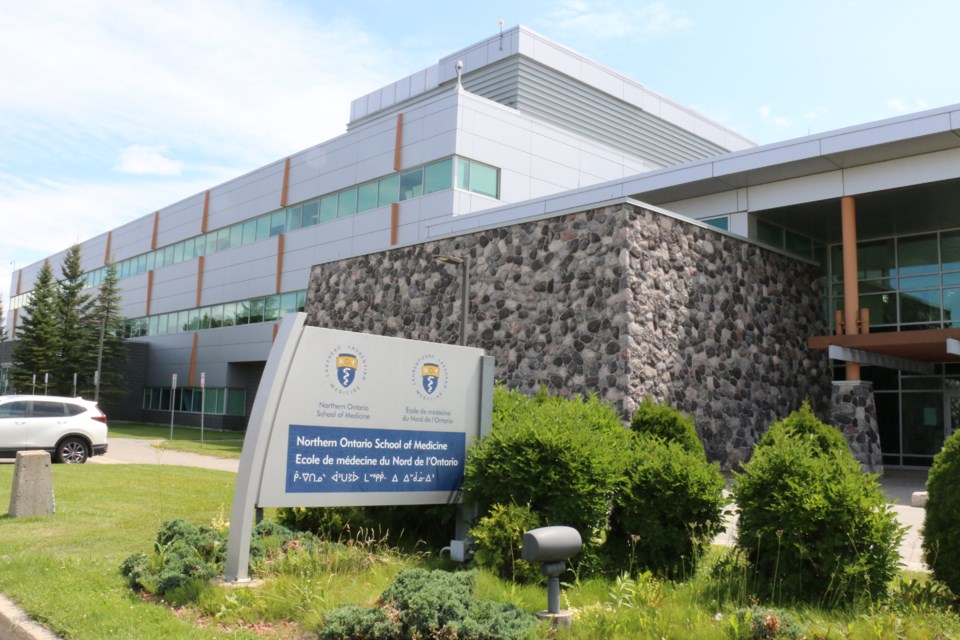NOSM University, formerly the Northern Ontario School of Medicine, is continuing an initiative that gives medical students the option to study in French.
NOSM U said the new Francophone Curricular Initiative, launched in September 2022, allows Francophone students to pursue their higher education in their own language.
In the first program that began a year ago, NOSM said 90 per cent of that cohort of first-year Francophone medical students participated.
Dr. Nicole Ranger, Francophone curricular lead and alumna of NOSM University, said that was an important indicator.
“The high uptake is a reflection of the need for this curricular initiative,” said Ranger.
“Learners come out of high school and university fluent in French, but they don’t have the medical terminology regarding patient care. Knowing that they would benefit extraordinarily from learning in French, these students were excited to be the first participants and are becoming strong ambassadors for our initiative.”
Previously, medical students who wanted clinical placements in French were required to complete extra work on top of their MD curriculum. The Francophone Curricular Initiative is more equitable and allows students to complete some of their mandatory MD curriculum in French, said NOSM.
The pilot will roll out over four years, with additional years of the MD curriculum added as the first cohort progresses through their studies, said NOSM.
While not all educational activities are offered in French, Francophone students currently participate in small group learning in French throughout their first two years of medical school. While on campus, they also interact with Francophone Standardized Patients in some of the clinical skills sessions. They can also undertake clinical placements in French, and every effort is made to pair them with Francophone preceptors, said the university.
Dr. Ranger said the payoff will be for French-speaking patients across Northern Ontario by creating equitable access.
“Language is one of the social determinants of health,” Ranger explained.
“When patients engage with their provider in a language they’re most familiar with — their mother tongue — this is a key aspect leading to improved communication that contributes to patient safety in care.”
Medical student Félix Lavigne commented on the value of pursuing his medical education in French.
"Considering the high population of Francophones in Northern Ontario, it is important for me to be able to offer equitable health care in French and English. As a physician, allowing a patient to speak in their mother tongue can make any medical encounter a better one,” said Lavigne.
